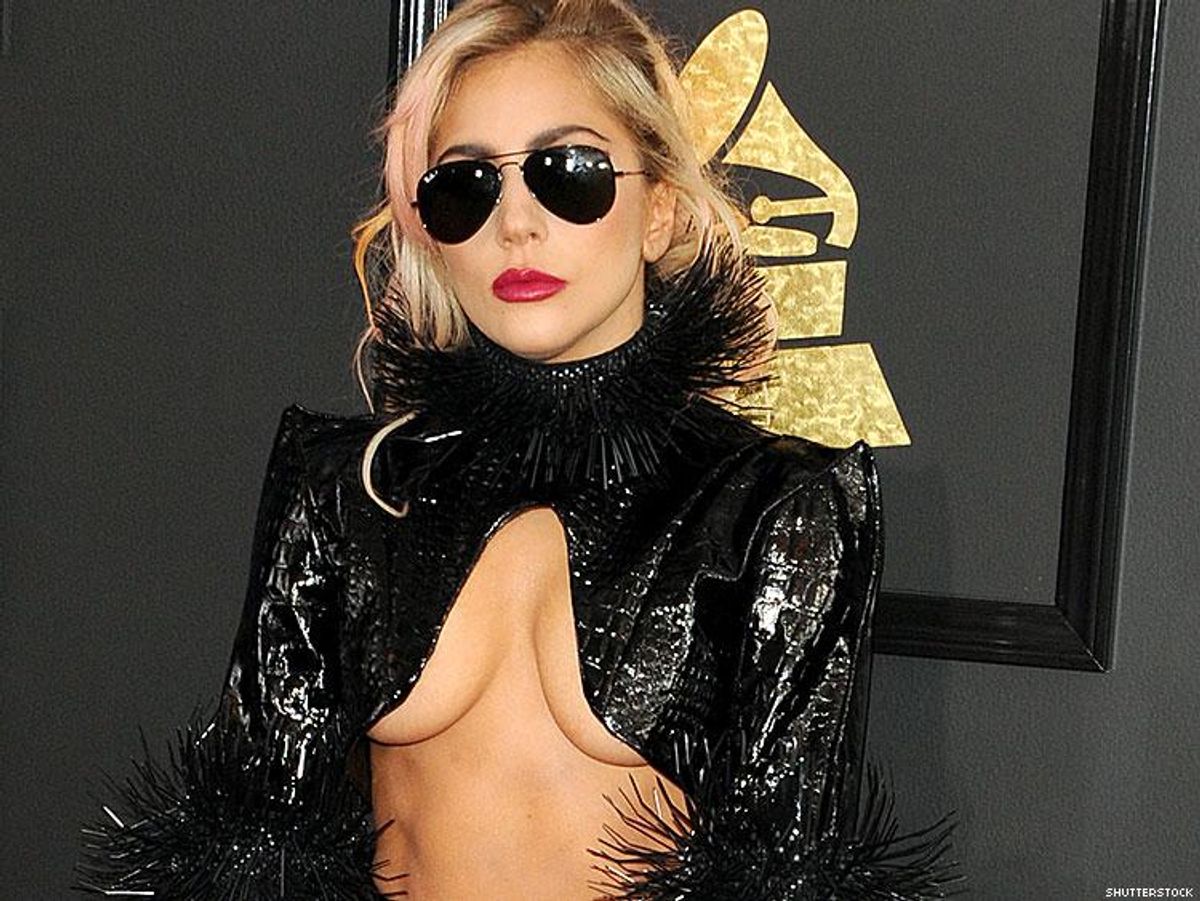Media
Is Lady Gaga LGBT or an Ally?

It's been a long time since the "Poker Face" singer self-identified as bisexual. Here's why that matters.
March 27 2017 3:00 PM EST
True
March 28 2017 8:43 AM EST
dnlreynolds
By continuing to use our site, you agree to our Private Policy and Terms of Use.

It's been a long time since the "Poker Face" singer self-identified as bisexual. Here's why that matters.
Lady Gaga made headlines for her Friday appearance on RuPaul's Drag Race, where she had a heartfelt conversation with the contestants about her relationship with the LGBT community.
"Becoming famous was very strange, and it's the gay men in my life that helped me to become a woman," Gaga said on Untucked, a web series that goes behind the scenes of VH1's reality drag competition. "I don't know that a lot of people would understand that but it's because of what you've been through -- you survived so much that you inspire me to continue surviving."
"I'm not a gay woman, you know?" she prefaced. "And [it's] that touchy sort of subject where -- can you stand up for people that you are not necessarily fully part of that community in a way that you can understand what you all go through?"
The monologue was a touching tribute to LGBT fans but also a confusing one. In 2009, Gaga publicly came out as bisexual in an interview with Barbara Walters. Then she revealed that her attraction to women inspired the song "Poker Face." So why does she not consider herself "fully part" of the LGBT community? Why can't she, as a bi woman, not "understand what you all go through"?
Public skepticism about the sexual orientation of Lady Gaga -- who has never had a public relationship with another woman -- has plagued her since this interview. As a result, the singer confronted her critics during a 2013 Artpop release party in Berlin.
"You know what? It's not a lie that I am bisexual and I like women, and anyone that wants to twist this into 'she says she's bisexual for marketing,' this is a fucking lie," she told the crowd during a Q&A. "This is who I am and who I have always been."
This declaration seemed to close the matter. Yet in recent years, Gaga has distanced herself from an LGBT identity. In 2016, Gaga gave a tearful speech at a rally for the victims of the Pulse shooting. "I hope you know that myself and so many are your allies," she told a mourning LGBT community, in a clear embrace of the "ally" label.
By saying she is "not a gay woman" on Drag Race, Gaga is further clouding the issue. If she still identifies as bisexual, Gaga is, at the very least, missing an opportunity to explain to audience members what it means to be bisexual. She could also have had a conversation with the gay contestants about the common ground bi women share as members of another vulnerable community.
No one can fault Gaga for a lack of heart or action on behalf of queer causes. From the singer's debut -- when she memorably screamed "Are you listening?" to President Obama at the National Equality March -- she has been an activist. Her work and voice have been appreciated by LGBT people around the world.
However, there is a world of difference between an ally and a member of this group, particularly for a public figure with her platform. Bisexual people routinely point to her as one of their most visible faces. She is "one of us" -- and in a world where myths against LGBT people (and bisexuality itself) exist, Gaga is a powerful pushback. There are also a host of obstacles unique to bi women, among them high rates of cancer and sexual assault, and Gaga could do much to help shine a light on them.
If she is not "one of us," then it is a loss for representation. Imagine if Tim Cook, the gay CEO of Apple, or Ellen DeGeneres or Lee Daniels began identifying as allies. The social impact would be profound.
It is also possible that Gaga is "re-closeting" herself, said Eliel Cruz, a bisexual activist, who has observed the shift from "bi" to "ally" many times in the entertainment world.
"It's common for bi celebs to publicly claim the 'ally' label to publicly avoid biphobia or due to their own internalized biphobia," Cruz said in a statement to The Advocate. "This is fueled by gays and lesbians who see bisexual people in different sex/gender relationships as allies and not actually queer."
"Internalizing this message is easy," he added. "Indeed, many bi people reflect this by attempting to own their 'passing' privilege. But passing is only re-closeting, and as we know, the closet kills."
Of course, Gaga has the right to self-identify however she feels. By proclaiming herself as either an ally or a bisexual woman, she does a world of good, said Lynnette McFadzen, the president of BiNet USA.
"I'm not a gay woman either. I identify as bisexual," McFadzen said. "But I want to emphasize that everyone gets to define their own identity. Whether she identifies as bisexual, an ally, or anything else is a question only Lady Gaga can answer. And either way, we're tremendously grateful for everything she's done to advocate for the LGBTQ community."
However, when one of the world's most visible representatives of the B in LGBT declares herself an ally and "not a gay woman," there will be queer heartbreak. Gaga, we thought you felt our pain. And if you do, let us know.
A spokesperson for Lady Gaga did not respond to a request for comment.
Want more breaking equality news & trending entertainment stories?
Check out our NEW 24/7 streaming service: the Advocate Channel!
Download the Advocate Channel App for your mobile phone and your favorite streaming device!